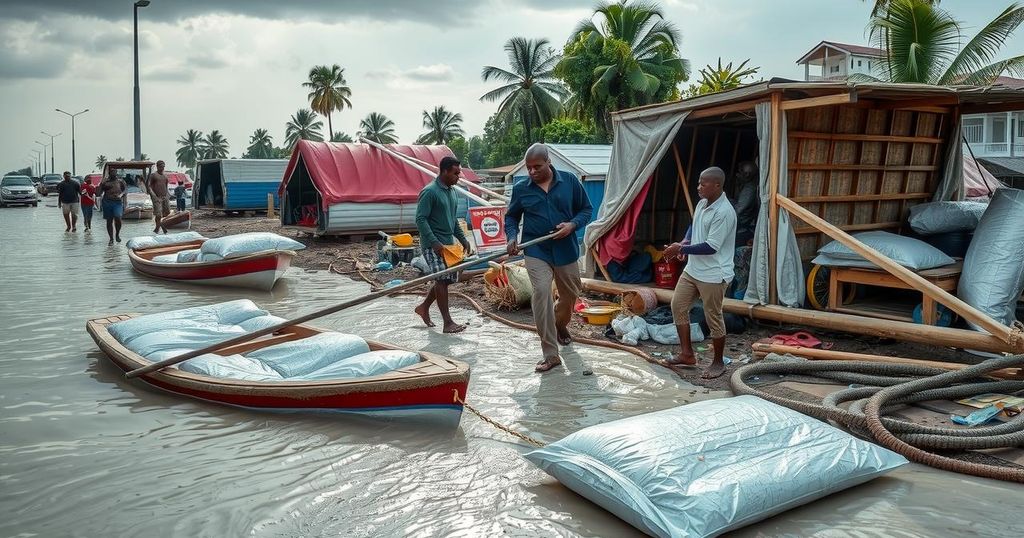Tropical Cyclone Chido impacted northern Mozambique on December 15, 2024, affecting 380,000 individuals with severe damage to homes and infrastructure. Immediate humanitarian assistance is required, particularly for shelter, food, and sanitation, amid ongoing conflicts and food insecurity in the region. IOM is seeking USD 12 million to assist affected populations in the coming months.
On December 15, 2024, Tropical Cyclone Chido struck northern Mozambique, significantly impacting particularly the Cabo Delgado, Nampula, and Niassa provinces. The cyclone generated torrential rainfall exceeding 250 mm within a 24-hour period and wind gusts soaring to approximately 260 km/h. Reliable estimates from the National Institute for Natural Disaster (INGD) indicate that approximately 380,000 individuals across 76,100 households have been affected, resulting in the devastation of over 88,670 homes, some completely destroyed while others sustained major damage.
Immediate humanitarian needs encompass shelter, non-food items (NFIs), food, as well as water, sanitation, and hygiene (WASH) kits. The situation is further exacerbated by pre-existing vulnerabilities in these regions, particularly due to prolonged conflict in Cabo Delgado since 2017, which has fostered multiple displacements as a result of sporadic violence. In addition, many areas are currently experiencing acute food insecurity, with some regions reporting an Integrated Food Security Phase Classification (IPC) level of 4.
The rainy season has just commenced in northern Mozambique and is expected to persist until April 2025, heightening the risk of flooding in the affected areas. Urgent intervention is required to assist households and communities recovering from the cyclone’s impact and to prevent any further deterioration of the humanitarian crisis. The International Organization for Migration (IOM) is coordinating its response with the INGD, the United Nations Office for the Coordination of Humanitarian Affairs (OCHA), and other agencies to address the immediate needs of the affected populations.
Cyclone Chido’s incursion marked a severe climatic event in Mozambique, compounding challenges already posed by lingering conflicts and food insecurity. The northern provinces, particularly Cabo Delgado, have faced instability since 2017, resulting in complex humanitarian conditions. The cyclone’s impact has created an urgent necessity for humanitarian assistance, as the affected regions are still grappling with the repercussions of ongoing conflicts. Efforts to provide aid are particularly critical with the onset of the rainy season, which could further exacerbate the situation by leading to additional flooding.
In summary, the aftermath of Tropical Cyclone Chido has created a significant humanitarian crisis in northern Mozambique, affecting hundreds of thousands of residents. With urgent needs for shelter, food, and sanitation services, immediate coordinated responses are essential for effective recovery. The International Organization for Migration is spearheading an effort to mobilize over USD 12 million to provide necessary assistance and foster resilience in the affected communities during this critical period of recovery.
Original Source: reliefweb.int






